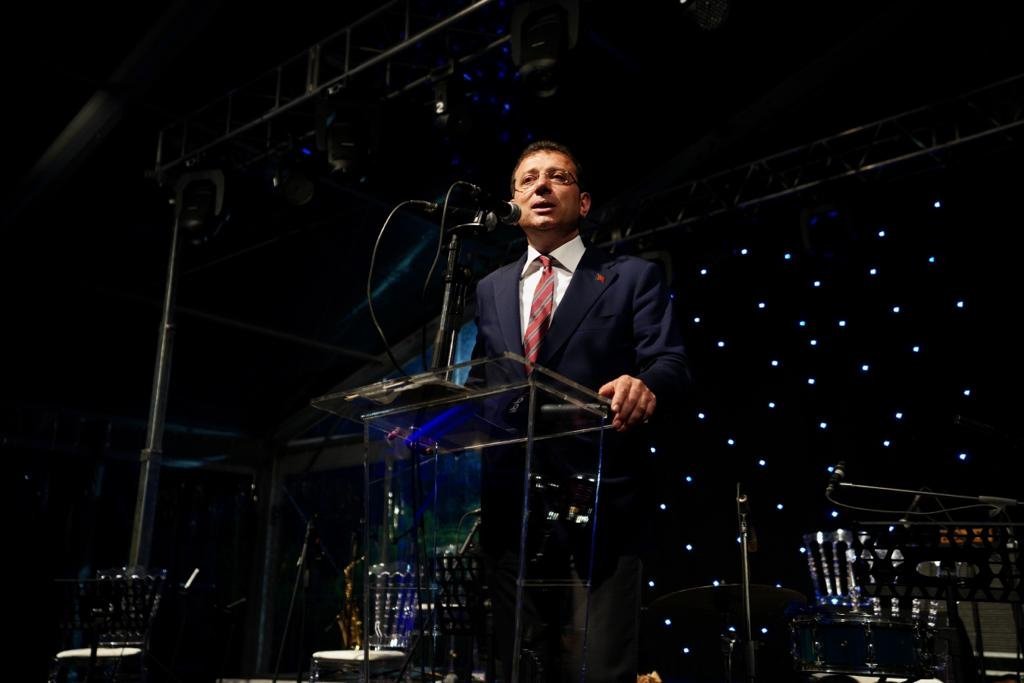News Scan, 31st Jan: Trade gap widens to $100 bln in 2013 as exports fall
Trade gap widens to $100 bln in 2013 as exports fall
Turkey’s 2013 foreign trade deficit increased 18.7 percent from the previous year to $99.8 billion due to a significant decrease in exports, the Turkish Statistics Institute (TurkStat) announced on Friday.
According to TurkStat, in 2013, exports decreased to $151.9 billion, a 0.4 percent drop from the previous year, and stayed below the target set by Turkey’s Medium-Term Program. Imports, however, increased 6.4 percent in 2013, totaling $251.6 billion.
In 2012 Turkey’s foreign trade deficit was $84.1 billion, but a sharp decrease in Turkey’s exports of gold has widened the trade deficit since then. The amount of gold exported decreased by 57.3 percent to $7 billion from 2012 to 2013, while in the same period gold imports increased by 90 percent to $16.2 billion.
Turkey’s gold exports, which boomed for over a year while Ankara paid Iran in gold for oil and natural gas, have subsequently dropped to a low level amid Western sanctions on Tehran. The gold trade between Turkey and Iran will resume, albeit at lower levels than last year, once the sanctions on Iran are eased, Iranian Ambassador to Turkey Alireza Bikdeli told a press conference in November.
TODAYS ZAMAN
Turkish business leaders divided over rate hike
The Central Bank raised all of its key interest rates on Jan. 28 to defend the lira, initiating a move that had long been expected by investors concerned over the course of political stability in the country and the U.S. Federal Reserve’s bond tapering plans.
The hike, the impact of which on growth is still being questioned, stirred disparate reactions from representatives of the country’s top business organizations. Muharrem Yılmaz, chairman of the Turkish Industry and Business Association (TÜSİAD), who recently became the target of harsh criticism from the prime minister for expressing concern over the investment environment in the country, praised the bank’s decision. “The Central Bank has made an important decision in order to rebalance the market,” Yılmaz said yesterday during a presentation of “Turkey’s Global Competitiveness Level Report,” held in Istanbul.
A representative of the country’s conservative business leaders, the Independent Industrialists and Businessmen’s Association (MÜSİAD) Chair Nail Opak, thinks the Bank should have continued this unorthodox policy mix. “We have expressed our opinion that the Central Bank could soothe the devaluation of the lira with different tools,” Opak said Jan. 30. “Interest rate pressure emerged on the Central Bank in the period beginning with the Gezi incidents to the Dec. 17 [corruption] investigation. Actually, the Central Bank had said it could eliminate pressure on the lira using different tools,” he added. “As the representatives of the real economy, we don’t find this radical change to be right,” Opak said.
HURRIYET DAILY NEWS
Davutoglu: The Syrian regime says they will not recognize any interim government. Then, why are they in Geneva?
Turkish Foreign Minister, Ahmet Davutoglu questioned the Syria regime’s position at the Geneva II talks after Syria regime officials refused to discuss an interim government without Bashar Assad.
Speaking to press at the 22nd African Union Summit in Ethiopia’s capital Addis Ababa, Davutoglu said that the important thing was to attend talks whilst abiding by the consensus reached at Geneva I talks, not to attend just physically.
“The Syrian regime says they will not recognize any interim government. Then, why are they in Geneva?” asked Davutoglu.
Davutoglu accused the Syria regime of stalling, as the regime delegations invited the Syrian National Coalition (SNC) to Damascus to continue the talks.
Set to continue until Friday, the Geneva II International Peace Conference is presently being held in Geneva, Switzerland, to try and find a political solution to end almost three years of civil war in Syria.
AA
New gov’t plans fuel concerns over executive’s grip on judiciary
The executive’s grip on the judiciary, which stepped up with the government’s relentless interference in the aftermath of an ongoing corruption and bribery investigation, is likely to become even tighter as recent remarks by the prime minister suggest.
Prime Minister Recep Tayyip Erdoğan said his government will introduce new measures to make legal wiretapping, which is carried out on court orders, more difficult. He said decisions for wiretapping will be given unanimously by related courts while they are currently given by a majority of judges. The prime minister’s remarks came on Jan. 29 as he responded to questions by a group of journalists traveling with him back from Iran.
In Turkey, prosecutors often wiretap the phone conversations of suspects to monitor and expose the activities of criminal groups.
TODAYS ZAMAN
Turkey’s tourism revenue hits USD 32 billion
As one of the most popular holiday destinations in the world, Turkey welcomed more than 35 million foreign visitors last year, becoming the 6th most visited tourist destination globally.
According to data released by the Turkish Statistical Institute (TurkStat), tourist spending in the country went up by 11 percent to hit USD 32.3 billion in 2013. 78.9 percent of that revenue originated from foreign visitors, while 21.1 percent came from Turkish citizens living abroad. Out of the total expenditure by visitors, individual expenses constituted around USD 24.8 billion while around USD 7.4 billion came from tour companies. The country’s visitors spent 824 dollars per capita.
According to the Ministry of Culture and Tourism figures, Germans preferred Turkey the most in 2013 as 5.4 million Germans took a trip to the country, followed by 4.2 million Russians and 2.5 million Britons.
Having welcomed over 11.1 million visitors, Antalya remained the most popular port of entry to the country last year, closely followed Istanbul, Turkey’s financial capital, with 10.4 million arrivals.
DUNYA
Erdoğan says alternative plans in store to boost Turkish Lira
The Turkish government is scheduled to launch new economic amendments, including cost reduction and investment incentives to curb the declining lira. Turkish Prime Minister Recep Tayyip Erdoğan’s announcement on the extraordinary economic package, including alternative plans, portrayed by Erdoğan as Plan B, is becoming clearer.
Prior to central bank’s emergency meeting, Erdoğan, who has overseen strong economic growth since coming to power in 2002, declared that he was against a hike in the interest rates. He also noted that the CBRT was an independent institution as they would be responsible and would have to account for whatever might arise in the upcoming days. However, if the CBRT fails to stave off the recent devaluation of the Turkish lira, the government has its own alternatives.
The Plan B on economy might require amendments to the CBRT law. These amendments will reform the country’s incentive system and drive costs down to draw international investments to Turkey. The new economic package is expected to include terms of references, which support U.S. and European style development and employment policies.
The high bank commissions on loans provided for small sized enterprises will be discontinued as banks will continue to provide low interest rate loans to those enterprises. The cost of investments will be reduced with investment incentive certificates. The government is also expected to tax those limited incentive certificates.
SABAH





